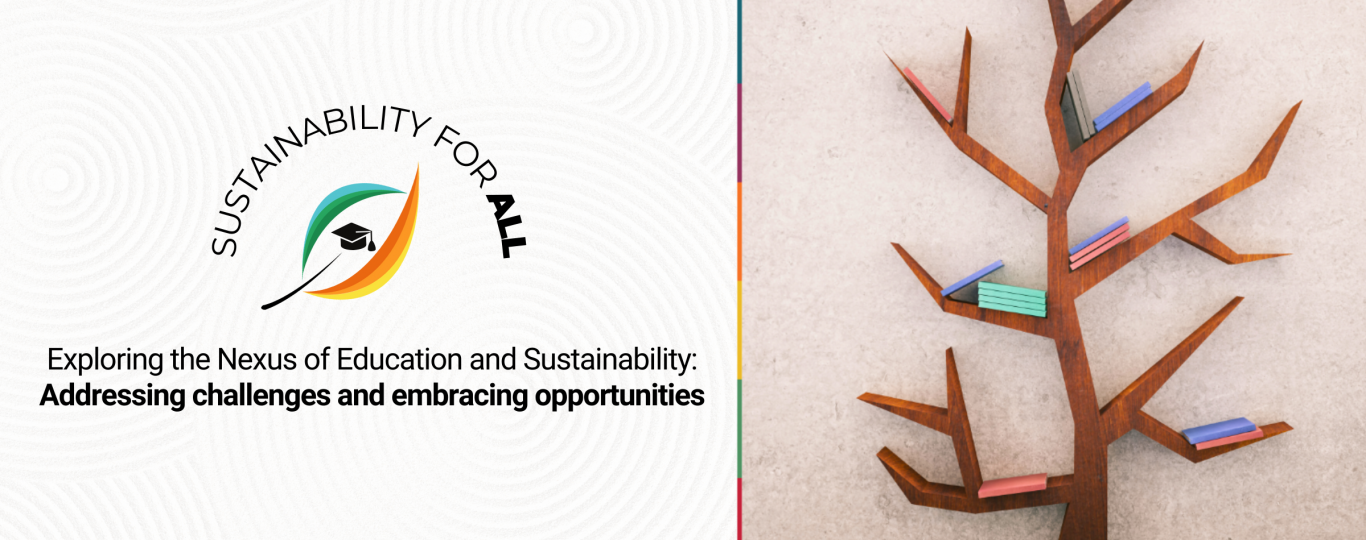
Sustainability is about meeting today's needs without harming the ability of future generations to meet their own. Over the past decade, the concept of sustainability has gained momentum, especially with the Sustainable Development Goals taking a forefront of development discourse. It has evolved beyond just environmental concerns to include social and economic aspects. Balancing these dimensions ensures the well-being of both people and the planet.
In India, the relationship between education and sustainability has two main aspects. First, there's traditional knowledge of sustainable practices that goes beyond formal schooling and, when perpetuated, contributes to sustainable goals. Second, there's the formal education system itself that creates equity and inclusion for all people towards a sustainable future.
To discuss the first aspect further, India's diverse geography profoundly influences people's lives—how they interact with the environment, socialize, and earn a living. People adapt by using natural resources sustainably. For instance, in southern and coastal areas, banana leaves are used as plates, reducing costs and waste to zero. Similarly, in the north, vendors use dried banyan leaves for bowls and plates, involving families and strengthening social bonds while conserving resources.
As cities develop and technology advances, there's a shift away from these traditional practices to disposable materials like plastic. While convenient, managing plastic waste has become a major challenge. However, there's now a resurgence in traditional practices, such as carrying reusable containers and developing biodegradable alternatives, driven by awareness campaigns and public support.
Laying the foundation for a sensitive connection with nature is crucial for developing one's social and economic lives. The way individuals perceive the environment and behave towards nature significantly influences, and to some extent governs, their economic practices. These factors collectively shape their social life. A sensitive approach to nature can lead to income generation through sustainable use of natural resources, thereby enhancing social life and contributing to both mental and physical well-being.
On the other hand, India's education system reflects stark disparities between private and government schools, urban and rural areas. Urban schools teach theoretical sustainability but lack natural engagement with nature. Rural schools may have a closer connection to nature but often lack basic facilities for education. This is a major deterrent to the inclusion of all strata of society and to sustainable inclusive development for all.
Many grassroots organizations and individuals across the country are bridging these gaps despite facing resource challenges. The intersection of education and sustainability in India presents both challenges and opportunities. By rethinking education, training teachers better, and fostering community partnerships, India can prepare its youth to build a sustainable future. It requires commitment from educators, policymakers, communities, and individuals to nurture environmentally responsible citizens who can lead India towards sustainability.
In conclusion, the nexus of education and sustainability in India is a multifaceted challenge that demands a holistic approach. By embracing traditional knowledge and integrating it with formal education systems, we can foster a deeper connection to sustainable practices. Addressing disparities in education, especially between urban and rural areas, is crucial for inclusive and equitable development. With concerted efforts from educators, policymakers, communities, and individuals, we can create a future where sustainability is ingrained in the very fabric of society. This journey requires ongoing commitment, innovative solutions, and a collective vision for a resilient and sustainable future for all. By nurturing environmentally responsible citizens, India can lead the way in achieving the Sustainable Development Goals and ensuring a better world for future generations.